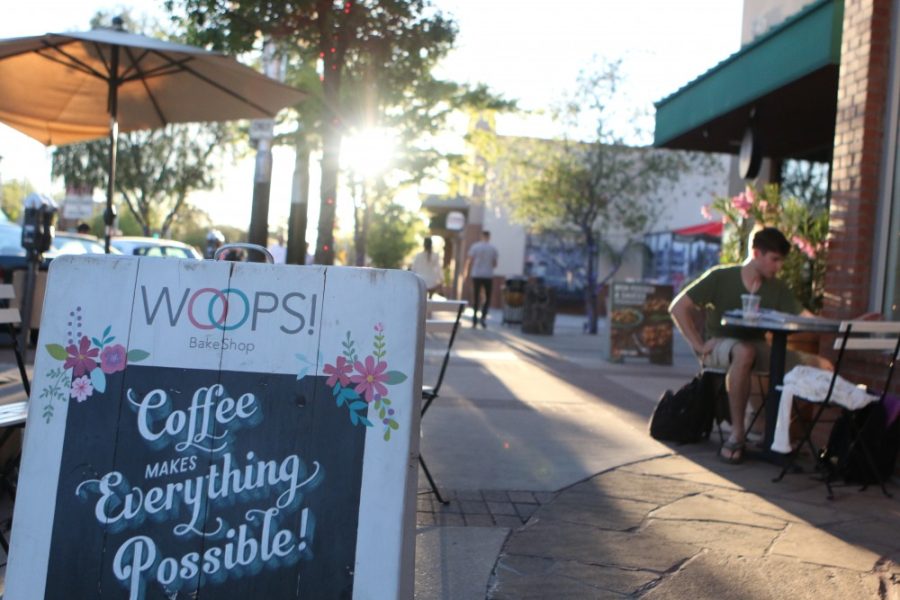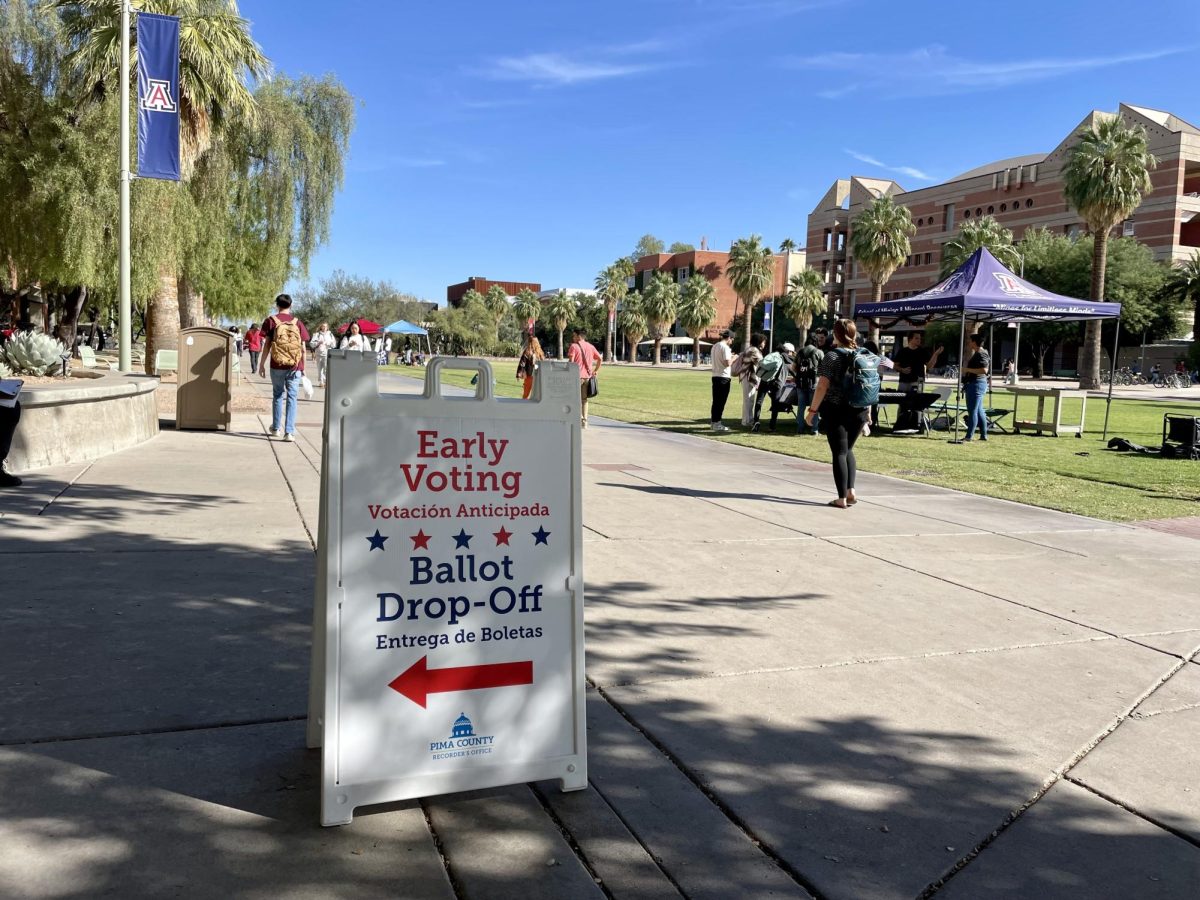Local businesses on University Boulevard near the UA are concerned about the new minimum wage hike. These businesses are mostly run by students as staff.
Proposition 206 was approved by voters last November to raise the minimum wage from $8.15 an hour to $10 an hour. With this new mandate, businesses on University Boulevard expect to be impacted because of this raise.
“It is pretty pricey especially for a restaurant like ours,” said owner of Kababeque Indian Grill, Saurabh Sareen. “I don’t feel comfortable that I can charge $10 an item to students.”
The award-winning Kababeque has been in business for 15 years and has over 20 part-time students as staff. The minimum wage boost has added $5,000 a month to the restaurant’s budget. But Sareen’s business has expanded as a food truck service for special events such as Kababeque Express.
“People who work hard, deserve to get paid more obviously, and I think we are just under the radar so we are okay,” Sareen said. “We will continue to give good food and good service, and take care of our employees.”
RELATED: University delays raising minimum wage
The small restaurant has won Tucson’s best restaurant award for seven years in a row, according to Sareen.
“Students are more adventurous to try new food,” Sareen said. “It is a healthy food as well; we use natural herbs and spices imported actually from India, we don’t buy anything from here.”
Another popular restaurant on University Boulevard is the 13-year-old wrap cuisine, Eat-A-Pita. This family-run restaurant currently employs 25 UA students and offers delivery services for clients.
“We opened in 2004, when minimum wage was $5.25 and the sandwiches were $5.50,” said current owner and manager Cami Quist. “The sandwiches now are $7.99.”
According to Quist, Proposition 206 thought about big companies like McDonald’s and Wendy’s. This left out the smaller businesses like her own, jumping to a minimum wage that can hurt her business.
“I think what they should’ve done is a percentage across the board,” Quist said. “They didn’t lower my state taxes, my city taxes or my payroll taxes.”
According to Quist, 60 percent of her business is delivery and she can only afford a limited number of in-shop keepers.
“Unfortunately, the two drivers I have here are doing a little bit of extra work, so I have them on a bonus program,” Quist said. “If we hit a certain amount in in-shop business, they get a little extra money.”
Other businesses seem more optimistic about the jump in the minimum wage and see this as an opportunity for better business. Espresso Art Café owner, Danny Mannheim, sees it as something not too harmful for his business.
RELATED: UA student employees weigh-in on Prop 206
Espresso Art Café began as an art gallery in May 2004, originally only selling coffee, according to Mannheim. The establishment incorporated itself as a hookah lounge about seven years ago.
“What I believe is going to happen is that sales will increase,” Mannheim said. “If everyone stays employed and makes more money, that is wonderful for business.The more money circulates, the more products and services.”
The carefree zone of Espresso Art Café is a student hangout, from playing chess with strangers to smoking the hookah with friends while listening to live music, according to Mannheim.
“If they have money to spend, it is good for business,” Mannheim said. “The worry is that most people will let their employees go if their payroll is too high.”
Proposition 206 supports a minimum wage of $10 by 2017 and then increments to $12 an hour by 2020. While it still has time to show its long-term effects on the businesses on the University Boulevard, it is too early to tell if the increase in wage expenses will negatively impact small business owners.
Follow Victor Garcia on Twitter.









